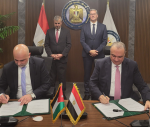You are here
Unpacking Jordan’s election results
Sep 15,2024 - Last updated at Sep 15,2024
The first elections following the modernisation of the political systemin Jordan, including a new election law, have yielded surprising results. Not only did the Islamist party achieve an overwhelming victory, but the pro-state political parties failed to make significant inroads through the National List.
From an analytical perspective, the strong performance of the Islamist party in the new parliament is not entirely unexpected. The party has a long history of electoral participation and is well-organised, with considerable experience in election tactics. Their commitment and strategic approach in this election were evident, driven by several factors. However, the reasons behind the Islamist party’s success go beyond organisational strength and tactical expertise. Both local and regional factors must be considered when analysing this victory.
Locally, weak recent governments have undoubtedly created a vacuum in public engagement. The state has struggled to build a compelling narrative, attract youth to its initiatives and engage broader segments of society. The government has also failed to address pressing issues such as unemployment, economic hardship and the need for meaningful cultural initiatives that foster a cohesive national identity. This disengagement has fuelled political apathy, creating fertile ground for opposition groups to grow.
On a regional level, the war in Gaza has significantly influenced the political landscape, providing the Islamist party with a platform to mobilise public sentiment. The party positioned itself as Hamas’ closest ally, leveraging this connection to gain popular support. The Islamists rebranded themselves as the primary voice on the street, ready to mobilise in response to the conflict. This placed the government in direct competition with their populist rhetoric. Despite the government’s attempts to counter this, competing with opposition parties on populist grounds is a losing battle. Whatever the government said or did regarding Gaza was met with scepticism and seen as insufficient by the public.
While the Muslim Brotherhood bloc may not have enough seats to control parliament, they will certainly complicate the work of the government. In contrast to recent parliaments that were relatively subdued, the Islamist bloc will pose a real challenge. Their ability to mobilise public sentiment could also be used to oppose government policies or demand changes, not just on foreign policy issues like Israel or the West, but also on domestic matters.
There were high expectations for new parties to secure a significant number of seats through the National List, but it is important to remember that this was their first attempt. Mistakes in electoral tactics and miscalculations are to be expected in such early efforts. Nonetheless, it is crucial to review the past three years of political management to understand why pro-state parties have been unable to attract voters. The failure to engage the public in the political process warrants closer examination.
Moreover, a strong government is needed to bridge the gap between the people and the political system. Such a government must be capable of advocating for its policies, engaging with the public, and building a compelling narrative that draws people into the political process. Above all, it must be able to withstand and address strong opposition in parliament, something recent governments have not been equipped to do.













Add new comment